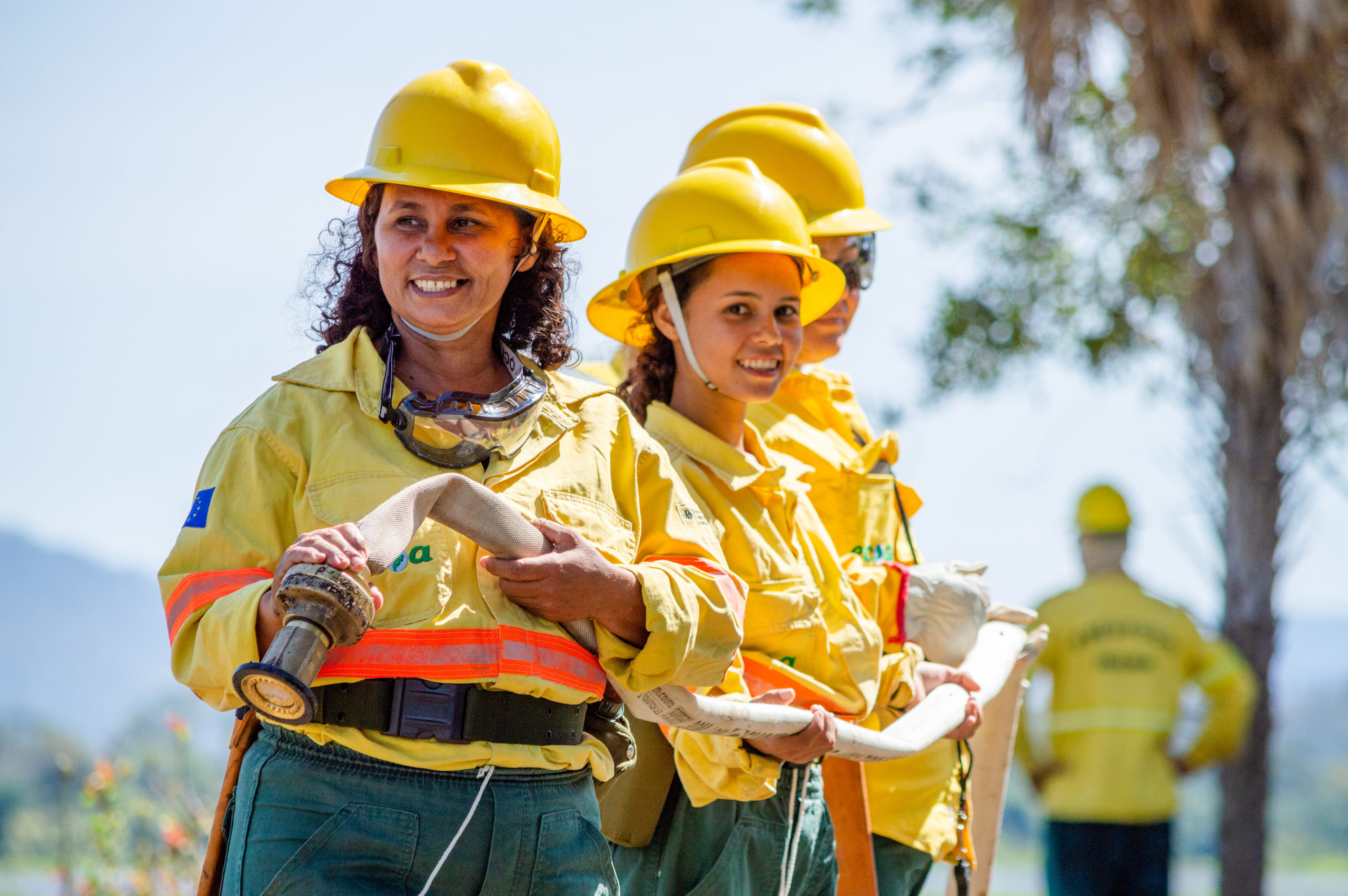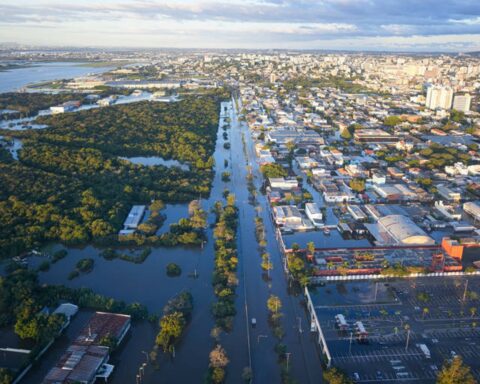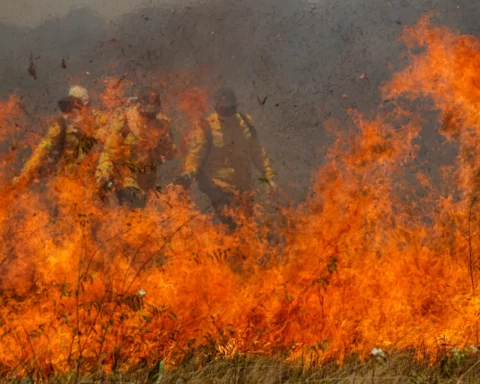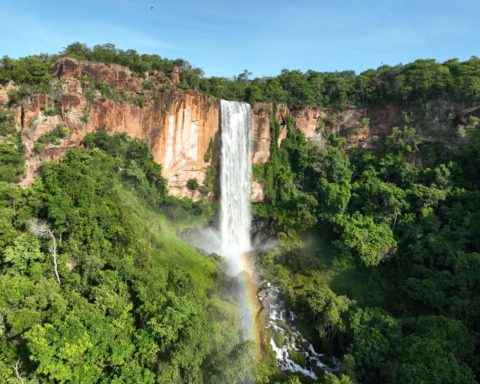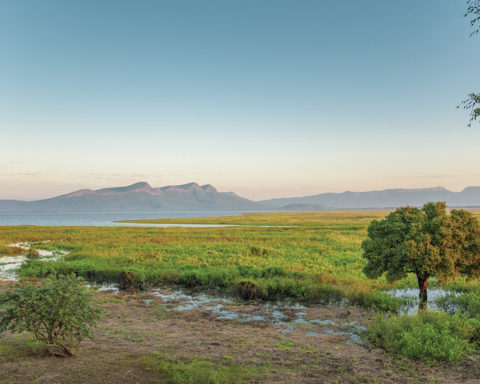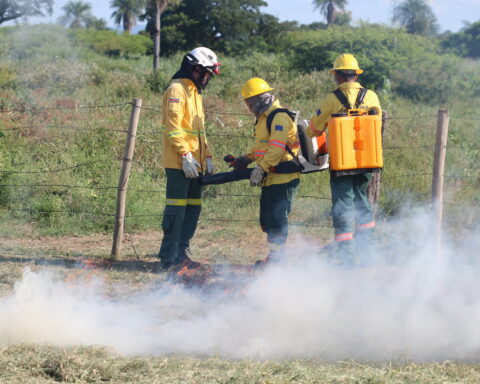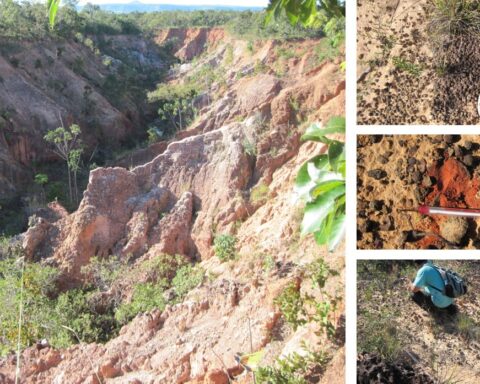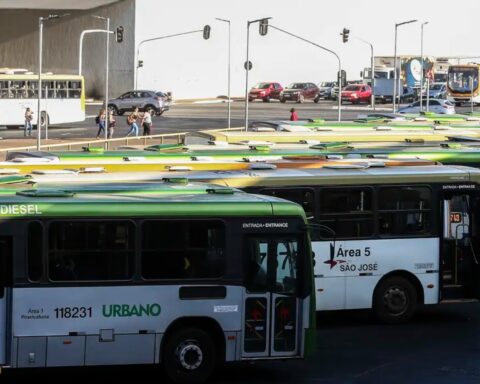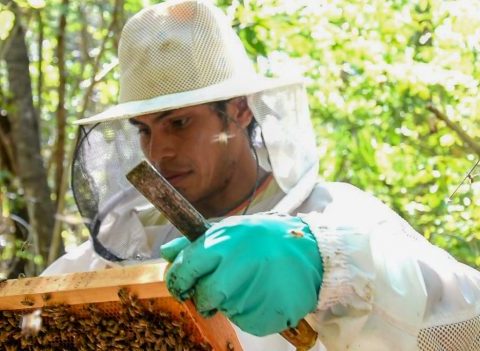Nos últimos anos, a Ecoa articulou a formação de 25 brigadas para combate e prevenção ao fogo. São ao todo 175 pessoas espalhadas pelo território do Pantanal e Cerrado, prontos e equipados para defender o local onde vivem. Além de promover maior agilidade de resposta diante de incêndios, formar novos e novas brigadistas é fundamental para promover monitoramento e educação ambiental nas comunidades. O treinamento é feito em parceria com o Prevfogo/IBAMA.
Anna Abraham, HQ Currently
2020 proved to be a devastating year for wildfires in Brazil. Over 44,000 fires were reported in the Amazon rainforest and Pantanal, the largest tropical wetland in the world. Baguari Island experienced its largest wildfire ever, destroying 26 percent of Pantanal and releasing 140 million mg of greenhouse gases. Over 3,800,000 hectares were destroyed and more than 17 million animals died. Among those affected were the local communities in Baguari, many of whom almost lost their homes to the fire.
The women of the island knew something had to be done. Traditionally, they roamed the island collecting bait for fishing and were consequently first to witness and report fires. The following year, with the help of the NGO ECOA, a few of them decided to form community fire brigades to act as first respondents.
Now, the women could fight fires themselves.
“When working with sustainable practices, it is they [women] who stand out..we have countless examples. With regards to fighting fires and forming volunteer brigades — they have a relationship of love and care for nature that is similar to the relationship of indigenous groups,” said André Luiz Siqueira, Director of ECOA.
Small-scale community groups can be crucial in fighting wildfires since they reduce response time and also know their land best. When firefighting begins within three hours of the start of a fire, the chances of success are higher. Organized local brigades can arrive faster than the fire team, mitigating loss and damage.
As Brazil faces drier years against the backdrop of climate change, such community brigades will be a crucial tool in wildfire prevention.
Apart from the Baguari fire brigade, ECOA has worked with 23 other communities since 2019 and has raised funds to form such fire brigades. For the training of volunteers in the brigades, Prevfogo/Ibama, the federal fire prevention authority, is looped in.
While the training includes combat, the main focus remains on prevention, awareness, and education. In this way, large fires have been avoided and even when wildfires occur, the official fire-fighting response is sped up because the community quickly informs Prevfogo.
“When a fire reaches an indigenous territory, a traditional community, a small rural property, or even a conservation unit, it is easier to mobilize the group to help in the fight,” Siquiera said.
“The challenge is really in the prevention work that must be done throughout the year, that is, to guarantee a mobilized group that donates its time and labor for actions that will avoid fires — such as making kilometers of firebreaks.”
In 2023, Prevfogo/Ibama is releasing a new participative app called SisFogo. ECOA is among the institutions which will help in the testing and application of this tool with volunteer fire brigades in the Pantanal. They hope to ascertain how effectively these brigades reduce burned areas and collect other important data for fire management and prevention.
